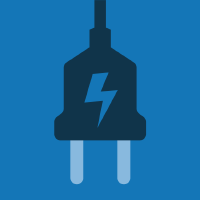Topic Menu
► Topic MenuTopic Editors


Electricity Demand-Side Management, 2nd Edition

Topic Information
Dear Colleagues,
We would like to invite submissions to this Topic on the subject of Electricity Demand-Side Management, which is a continuation of the previous successful Topic. Demand-side management (DSM) is a critical instrument to deal with contemporary utility business risks. At the same time, it is also part of the portfolio of options of energy and environmental policies in the context of climate change. The electricity industry is disorganized in many parts of the world, while in many others, it is vertically integrated. DSM plays similar roles in both cases. Consolidated management instruments may be used in the case of vertically integrated utilities, where the impacts of acting on the demand side are perceptible across the value chain. In the case of liberalized markets of electricity, new approaches have to be used, as there is a much larger number of relevant economic agents whose interests are not coincidental. New insights and methods have to be used for assessing the economic and societal interest of DSM programs and measures.
Together with distributed energy resources, DSM is a part of a larger picture where demand flexibility is key to a sustainable energy future and where renewable electricity, energy storage, demand response, electric mobility and smart grids are all inextricably connected.
We look forward to your submissions with new insights into the contemporary and future roles of DSM.
Prof. Dr. António Gomes Martins
Prof. Dr. Luís Pires Neves
Prof. Dr. José Luís Sousa
Topic Editors
Keywords
- demand-side management
- demand response
- energy efficiency
- cost–benefit analysis
- distributed energy resources
- flexibility management
- flexible demand in smart buildings
- behind-the-meter storage control
- consumer behavior
Participating Journals
| Journal Name | Impact Factor | CiteScore | Launched Year | First Decision (median) | APC |
|---|---|---|---|---|---|

Applied Sciences
|
2.5 | 5.3 | 2011 | 18.4 Days | CHF 2400 |

Energies
|
3.0 | 6.2 | 2008 | 16.8 Days | CHF 2600 |

Processes
|
2.8 | 5.1 | 2013 | 14.9 Days | CHF 2400 |

Clean Technologies
|
4.1 | 6.1 | 2019 | 33.5 Days | CHF 1600 |

Electricity
|
- | 4.8 | 2020 | 27.9 Days | CHF 1000 |

Preprints.org is a multidisciplinary platform offering a preprint service designed to facilitate the early sharing of your research. It supports and empowers your research journey from the very beginning.
MDPI Topics is collaborating with Preprints.org and has established a direct connection between MDPI journals and the platform. Authors are encouraged to take advantage of this opportunity by posting their preprints at Preprints.org prior to publication:
- Share your research immediately: disseminate your ideas prior to publication and establish priority for your work.
- Safeguard your intellectual contribution: Protect your ideas with a time-stamped preprint that serves as proof of your research timeline.
- Boost visibility and impact: Increase the reach and influence of your research by making it accessible to a global audience.
- Gain early feedback: Receive valuable input and insights from peers before submitting to a journal.
- Ensure broad indexing: Web of Science (Preprint Citation Index), Google Scholar, Crossref, SHARE, PrePubMed, Scilit and Europe PMC.
Related Topic
- Electricity Demand-Side Management (27 articles)

